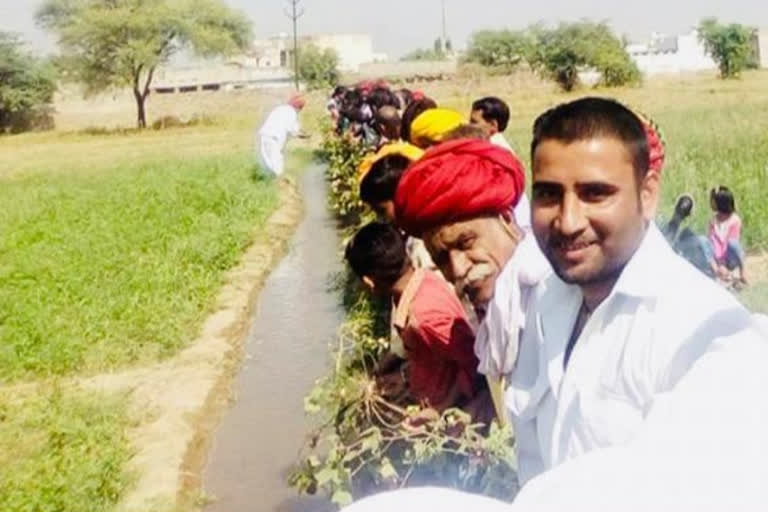Ajmer:'Indian culture', when used as a term, is not composite. Regional variants, fuelled by changes brought in through lifestyle, geography, and social standing, often bring in practices that stand sharply in contrast to the mainstream. One among many such displays in this nation of 1.4 billion+ is 'Shradh' - literally translated to 'funeral', but actually a ceremonial offering belonging to the Gurjar community.
Diwali, the 'festival of lights, is largely celebrated to welcome Goddess Lakshmi, who according to Hindu lore, invites prosperity to the homes of the faithful. However, members of the Gurjar community - spread across large swathes of Northern and Western India - use this day to make their offerings to deceased ancestors.
Speaking about the ritual, Hari Singh Gurjar, former president of the Rajasthan Gurjar Mahasabha, notes that the tradition has been going on for centuries, and stems from the community's cattle herding habits since its very inception.
Also read:UP: Agra district jail inmates to prepare 1 lakh diyas using cow dung for Diwali
"The Gurjars have always been associated with agriculture and cattle herding. People, in lakhs, used to historically travel to other regions in the country to settle in favorable areas," he explained.
"If there were deaths in the family during this time, they could not make it in time for the last rites. Eventually, members of the community decided to conduct this ritual where they started providing food items such as 'ghee', 'churma' and 'phulka' to their loved yet departed ones" he further added.
"The group gathers near any source of water, and each person spreads out bundles made of fresh grass and fig leaves - used normally to feed cows - near the shore. Then, a portion of the food carried from home is kept in the bundle and immersed. Following this, we remember our ancestors, and pray for the well-being of their descendants," Gurjar stated, adding that the group then feasts on the remaining food.
Rohitash Gurjar, another member of the community, explains that the practice is passed on from one generation to the next. "The grass bundle offering signifies the continuation of the family," he notes.
